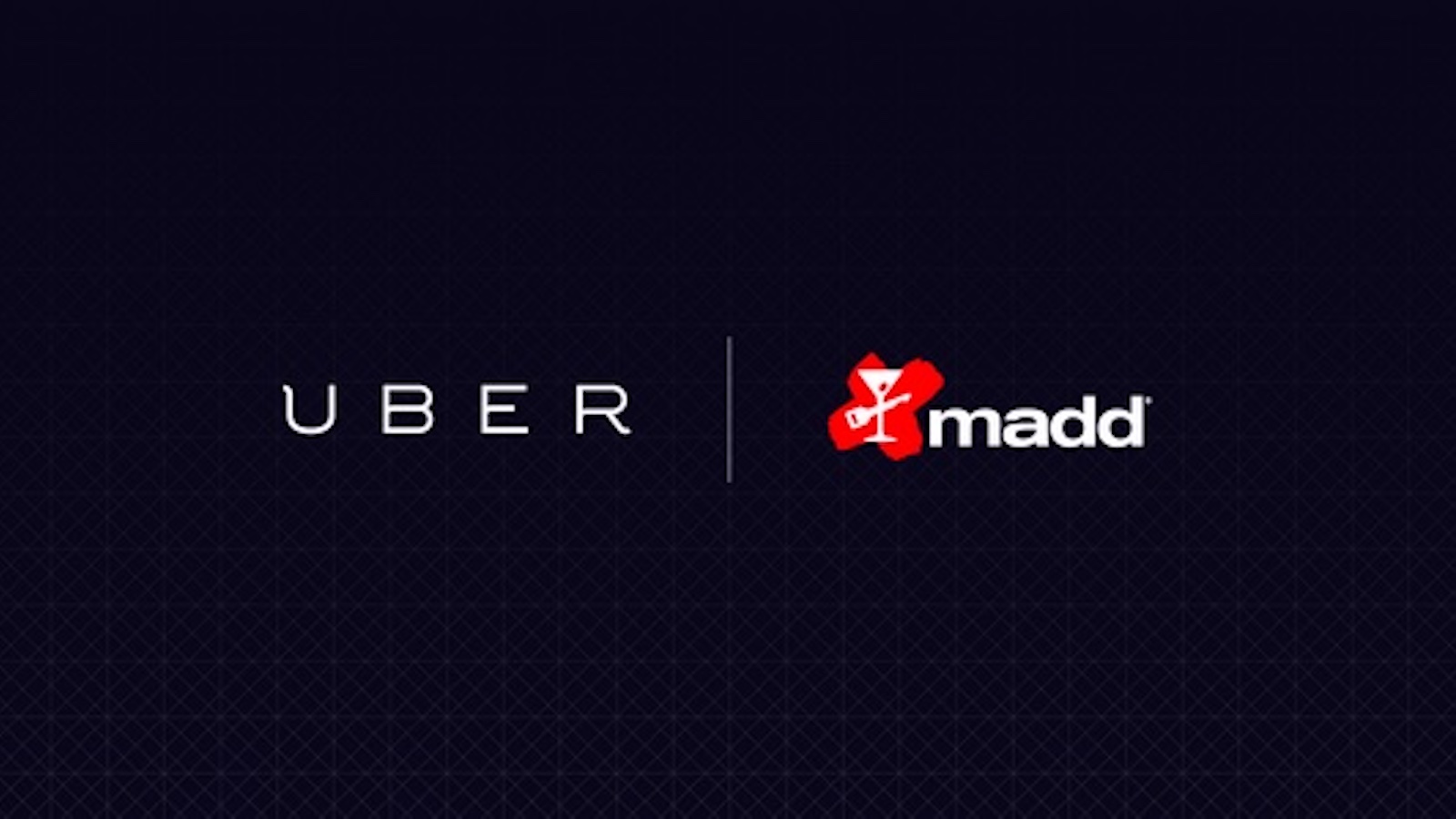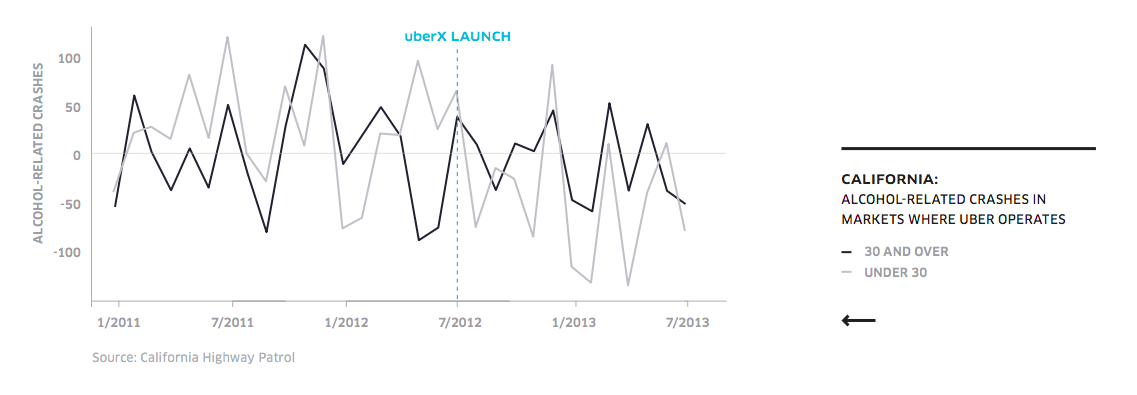
Another Reason Uber Gets Banned
I live in a college town where drunk driving is a way of life. I once asked a policeman what his main job was in my town and he said very plainly: “stopping and arresting drunk drivers.” I asked how he knows whom to stop. His answer is that he has developed a nose for this. They are everywhere. He has learn to send one after another to jail. It’s sport.
It’s also very lucrative for the city. Once you total up the costs to the convicted, they range between $9,000 and $25,000. The first fruits go directly to the local government: bail, various fees, court costs, ticket fines, classes for which they charge money, and more. A conservative estimate on how much a city wins for each DUI arrest might be $5,000.
After the 2008 financial crisis, with real estate values plummeting and public pensions collapsing, all cities around the country began to scrounge for revenue. This is the period in which DUI checkpoints became very common around the country. It’s a great source of income for governments at a time when raising taxes became politically intolerable.
But doesn’t this set up a moral hazard for city governments? If drunk driving becomes a revenue generator for governments, why would they want to end it with a market-based solution made possible by the P2P economy?
What if, for example, a new service came along that permitted anyone to push a button on a smartphone and summon a car with a sober driver to take you home? Such a service might be extremely popular among consumers. It would allow people to have that extra drink, or two, or three, and not risk ruining their lives and making the roads unsafe for others. Everyone would benefit from such a service — everyone except local governments who stand to lose a lucrative revenue source.
Now we begin to see a connection between the rise of Uber, Lyft, and other ride-sharing services, and the tendency of local governments to try to drive them out of business.
There is growing evidence that Uber has had a big effect in reducing drunk-driving arrests. A new study, co-sponsored with Mothers Against Drunk Drivers, tracks DUI arrests in major cities where Uber operates and finds a notable fall. The study began in Seattle and found a 10% decline in arrests.
In Miami, the study found a close relationship between the hour of the day when alcohol-related crashes occur and the requests for Uber trips. A correlation in Chicago appeared between bar closing times, crashes, and Uber requests. The biggest data set came from California and revealed a 6.5% decline in alcohol related crashes.

Such studies are helpful but not necessary intuitively to understand the way this works. If you are out drinking, and you have no convenient options, you take the risk to yourself and others and drive drunk. No amount of enforcement is going to change this. The police can only stop and arrest so many people, and, chances are, you are not going to be among them.
On the other hand, if you have an easy way to avoid that path, and pay the equivalent price of another couple of drinks rather than risking paying $15K and ruining your life, you will go for it.
Uber and Lyft and these other services did not start as services to get rid of drunk driving. They began as an innovative way to meet unmet demand for private transportation services. People needed a better alternative to the taxi monopoly. But the rule of unintended consequences applies in both the public and private sector. One effect of this innovation is to make the roads safer.
In my own community, the city regulators set out to drive Uber out of the community by demanding that all drivers carry commercial levels of insurance and have other forms of certification that Uber would not provide. As a result, you can’t use Uber or other services. The ostensible reason here (prepare to laugh) is to keep people safe from unregulated and supposedly dangerous transportation services.
What is the effect of having banned them from the local market? It means not only the persistence of consumer inconvenience. It means more drunks on the road. It means forgoing a chance to actually allow consumers a chance to solve the problem of their own volition. It also means sustaining an important source of revenue for the local government.
My community is hardly alone. South Carolina has banned Uber throughout the state. What does the ban mean? It means that the police can stop cars who are picking up people who are summoning them, fine the driver, and possibly arrest the passenger.
This actually happened in the first days after the Uber ban. In Charleston, a woman who was drunk had called an Uber to meet her in front of a club. She stumbled out and was ready to get into the car. A policeman saw a black car in front of the bar, pulled up, and then told the woman that she could not get into the car because this service was now illegal.
“Who made that rule up?” she demanded. The policeman explained that the South Carolina regulators had. “Fuck you, asshole,” she responded. She was promptly arrested on charges of disorderly conduct.
So there you go. The city made thousands of dollars by force. One driver was prohibited from making a few bucks through a voluntary exchange.
For years I’ve smelled a rat surrounding DUI enforcement. Are governments really interested in safer roads, in which case, why not crack down on reckless driving rather than setting up a system that makes everyone a target of intrusive investigations of personal consumption habits? The case of Uber has helped clarify matters.
The banning of Uber isn’t just about protecting expensive and inferior local taxi monopolies. It is also about protecting a revenue stream for governments. The right to arrest and the proliferation of arrestable people are essential to that revenue stream.
Free the People publishes opinion-based articles from contributing writers. The opinions and ideas expressed do not always reflect the opinions and ideas that Free the People endorses. We believe in free speech, and in providing a platform for open dialogue. Feel free to leave a comment.




Adam Minson
This is article is so good. Why? Because it makes me feel even more frustrated. It makes it so clear that statism does not work and that voluntary exchange is a much better course. It reaffirms my conviction of voluntarism. And that makes me sooo frustrated!!! How can others not understand?! Why are the vast majority of people so determined to continue supporting and defending the state when there are so many examples, like this one, that prove the state is not the answer? Thank you Jeffrey Tucker for frustrating me! Thank you for writing yet another excellent piece.
Tom M
This is an interesting article, but I think it would be lost on your average person (voter). I wish we could prove this type of maleficence with definitive data. Unfortunately, I am sure most government officials have the common sense not to put motives like this in writing (or allow themselves to be recorded saying anything about it). The Statist narrative is that the profit motive doesn’t influence their decision making, but everyone on Liberty Me knows that isn’t true. It’s those “on the fences” we need to convince.
I’m having trouble getting people to understand that Uber’s pricing system is Economics 101 and not “Price Gouging”. I think having a discussion about public choice theory and how the government has an incentive to generate revenue through human misery caused by drunk driving would burst a lot of blood vessels.
Jeff Siegel
Starting tomorrow, the city of Annapolis will begin their bully campaign against Uber drivers. It’s all over the news here in Maryland. Check it out: https://www.libertybriefing.com/articles/annapolis-lawmakers-legally-bully-uber-drivers/375
Toni Sopocko
Uber/Lyft are banned in Nevada. Because $$$.
Prostitution and gambling are legal, but speeding, marijuana, drunk driving, have always been huge money makers for the state. Think about it; politicians love hookers and gambling and alcohol. They ride in limos, so aren’t likely to be affected by lack of a sober driver. They also make lots of money off taxi medallions in Harry Reid’s home city. It’s a union town that doesn’t play well with innovators. Kind of a ‘Chicago West’.
The people who make laws usually are careful to be sure that those laws won’t impact them. It’s all about keeping the little people little.
Dianna Zisman
Fantastic article! That the government would attack the Ubers and Lyfts of the world to protect Taxi/public transportation interests was clear. The connection to profits from drunk driving busts is much less obvious, but — I believe — no less important. As Stefan Molyneux would say, the people who *treat* cancer aren’t the ones who’d profit from its eradication. And politicians who profit from drunk driving arrests have shown that they have zero incentive to actually *prevent* drunk driving.
Jeff Siegel
I think it’s more about taxis than public transportation. I mean, Uber presents a direct competitor to the taxi cartel. Yes, I said cartel. Haha. But public transportation is another kettle of fish completely. Public transportation systems, at least in the U.S., for the most part, tend to be incapable of profitability, but states and cities make a crapload off the taxi industry through licenses, fees, regulatory hurdles, insurance scams, and of course, taxes. Most taxi drivers do get a raw deal. I’m surprised more don’t support an alternative to the taxi industry.